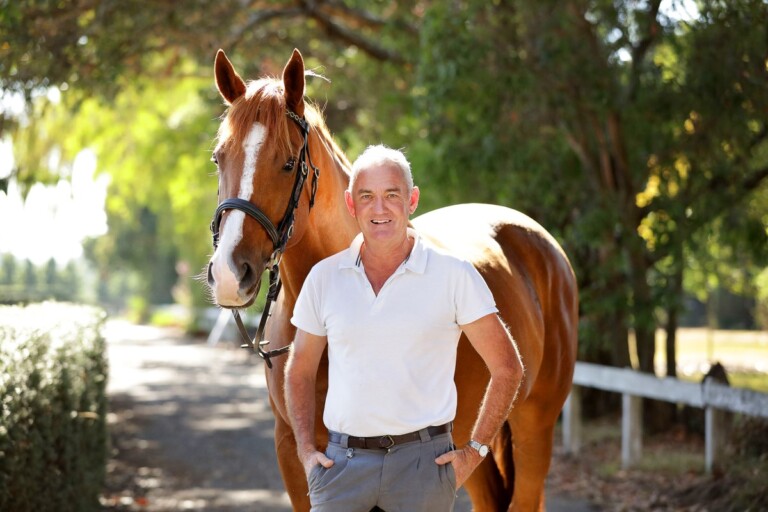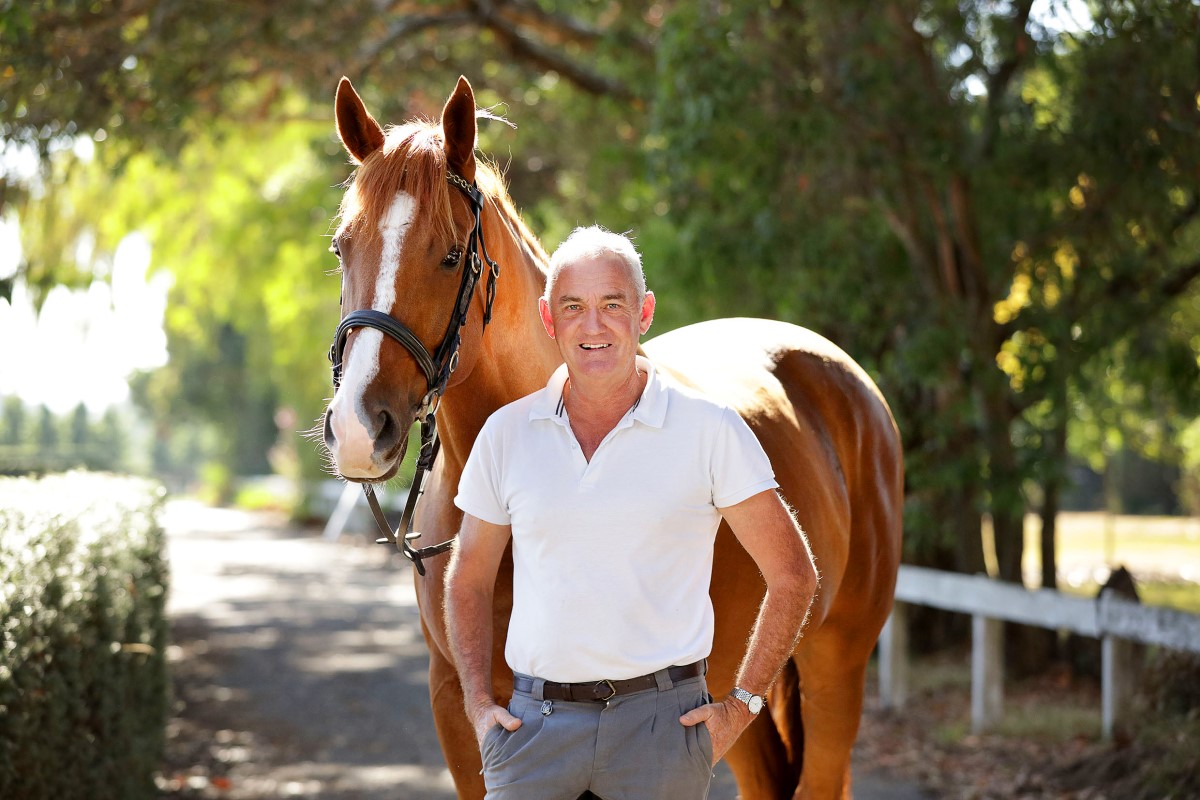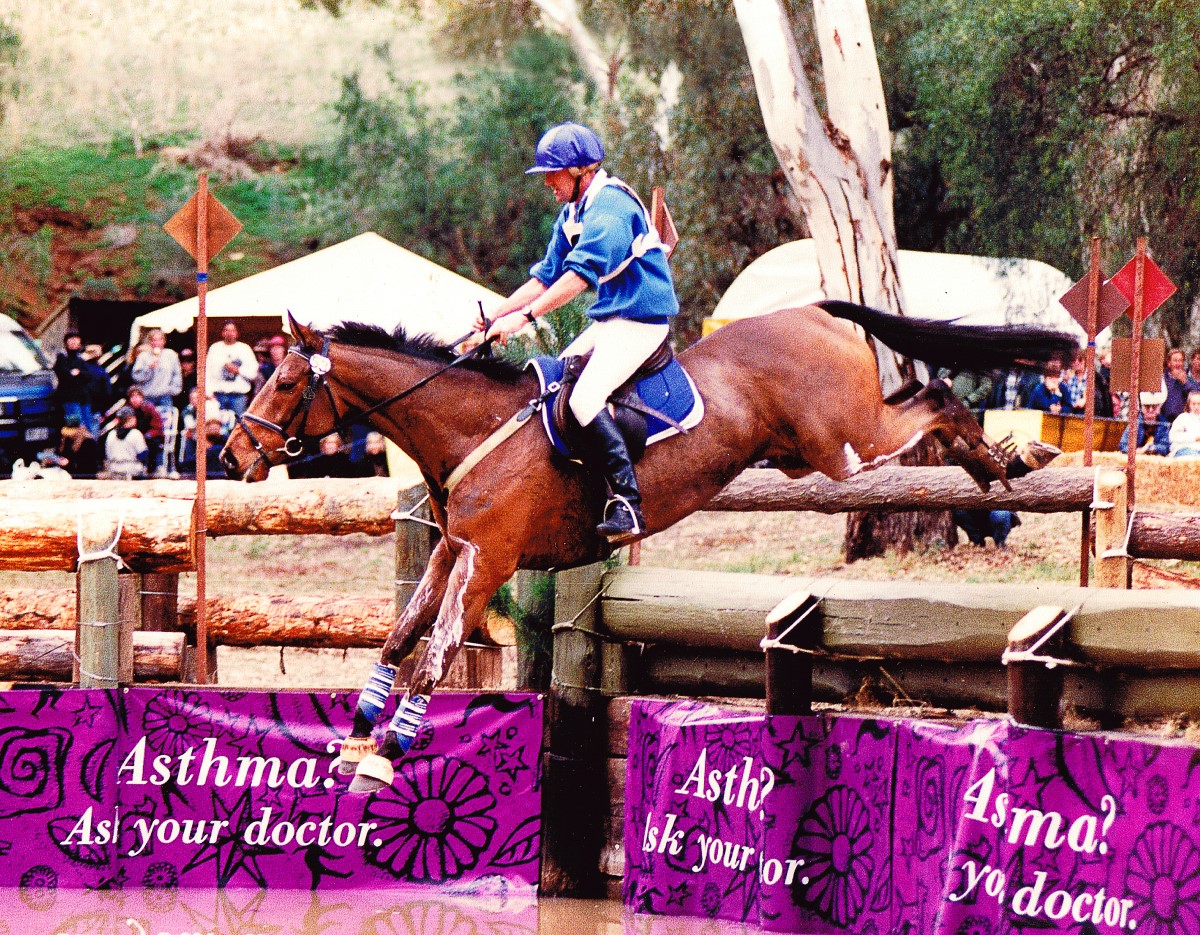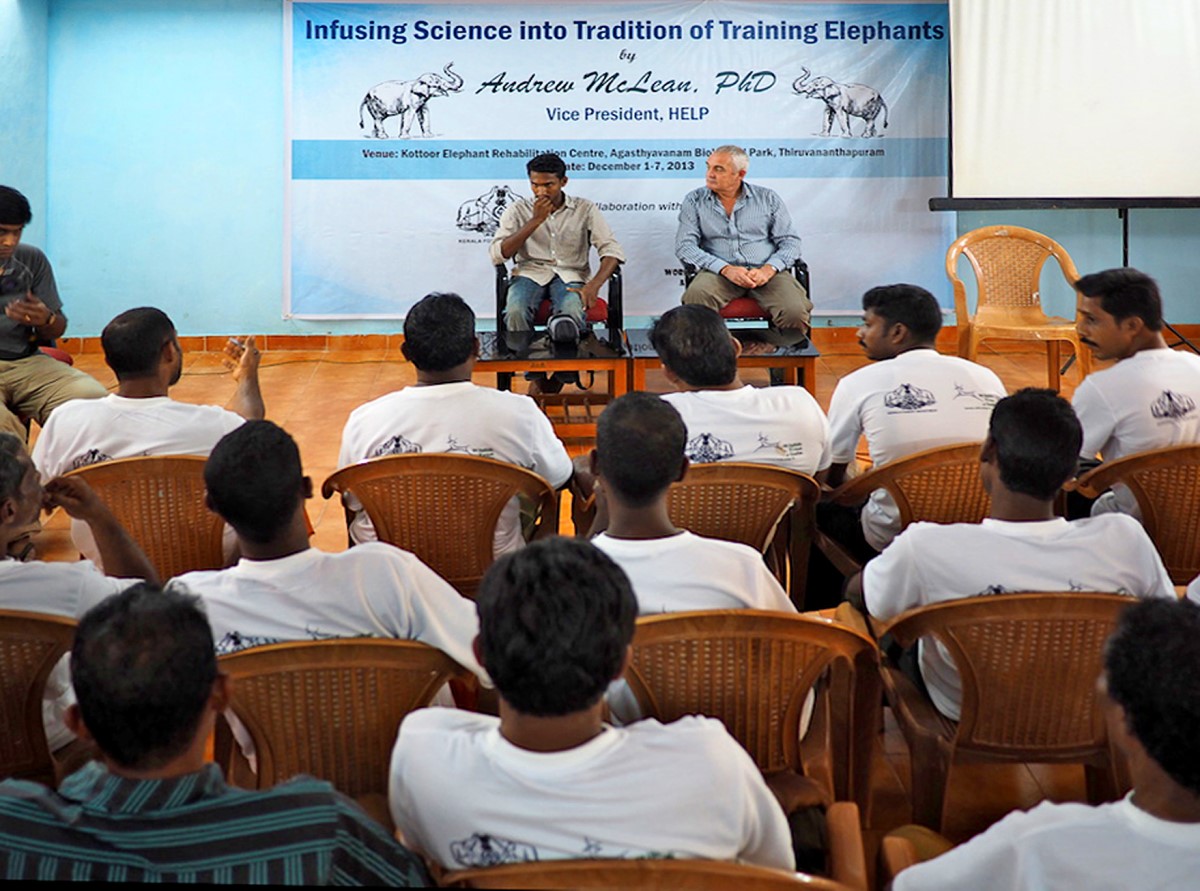Dr Andrew McLean, PhD (Equine Cognition & Learning), BSc (Zoology), Dip Ed, is Co-Director of Equitation Science International, and conducts demonstrations at universities and conferences around the world. He is Senior Vice President of the not-for-profit Human Elephant Learning Program, and his achievements in eventing and dressage are numerous.
Charlie Brister sits down with Dr McLean and asks him 20 questions about life, horses, and what’s next.
Q: How old were you when you started riding?
A: I don’t recall. I think I started about the same time I started walking. I do remember my first pony was an opinionated Shetland named Cricket.
Q: Was your family horsey or were you the odd one out?
A: My grandfather was a show jumper in Queensland. My parents had horses so riding was pretty natural for me. Growing up on King Island allowed us to spend any spare time galloping around on our ponies.
Q: Where did your jumping start?
A: Dad was a show jumper and he would set up jumps and give us a hand to jump as high as we possibly could with 44 gallon drums and a few poles. That led into show jumping then eventing.
Q: When did you start to learn about the finer points of riding?
A: When I was at university in Hobart. I kept my horse at a riding school run by George Sanna’s father. (George is an Olympian, World Cup show jump rider and coach).
Q: How did you balance riding and university?
A: Quite a lot of people at uni rode. George Sanna was studying law there. We were both at Hobart Show one year which ran at the same time as the uni study break. I did mention that we should probably be at study break but that didn’t stop us from competing. I never really did a lot of study back then. For me it was more about horses.
Q: What was your first degree?
A: Zoology, then when I went back to teach at University I got my DipEd. The PhD in Equine Cognition and Learning came later.
Q: When you’re not riding, how do you relax?
A: Usually with music, I do something with my brain if I can and some reading. I am learning Spanish at the moment.
Q: Which of the 3DEs you’ve competed in had the toughest cross country?
A: Gawler was by far the toughest after the World Championships in 1986. Some of the Tasmanian courses were a bit crazy looking back on it though.
Q: How did you get your horses fit during the days of the long format 3DE?
A: I met Lucinda Green and she put me onto the work of US equestrian coach Jack Le Goff and the importance of interval training. Racehorse trainer Luca Cumani was also very helpful when I spoke to him.
Q: Who was your best horse and what did you like about him?
A: Woodmount Enterprise. He was just really tough. He was a fraction under 15.2hh, a real nugget of a horse. Quite a good racehorse and really good in the cross country but also a good show jumper up to B grade. He was an absolute machine, really fast.
Q: So you trained racehorses as well?
A: I was breaking in Thoroughbreds and pre-training racehorses and I became interested in it from there. I loved working with Thoroughbred horses! I trained a horse bred for the Melbourne Cup that didn’t win anything on the track but it became a very successful eventer, Woodmount Magic. He eventually sold to Tim Collins in England and was one of the first Australian produced stallions and competition horses to be sold for six figures.
Q: Is there anything different you’ve been working on during the COVID dramas?
A: Just being home has meant I’ve had a lot more time to focus on studies. I’ve done a few scientific reviews and papers including a modification to the current Five Domain model of animal welfare.
Q: If you had to switch disciplines, what would you choose?
A: Definitely show jumping, the only reason I stopped jumping was that I loved galloping when I was younger.
Q: Favourite breed of horse?
A: I really got to love Thoroughbreds.
Q: If you had to stop riding completely, what would you do?
A: I would probably be teaching at university, and would probably be involved in a sport too. I did a tetrathlon once and really enjoyed that.
Q: What can people learn from horses?
A: The horse teaches you so much about yourself if you can be bothered to listen. They’re like a mirror.
Q: Which riders out there do you see doing a good job of balancing high level competition rider and all round horsemanship?
A: Warwick [Andrew’s son] is doing a pretty good job. He’s getting better and better all the time. He trains a lot of horses for top people. At the elite level I’m pretty impressed with Ingrid Klimke. She can do anything. I was a huge fan of her father Reiner Klimke.
Q: What areas of research are you looking into next?
A: I’d like to see much more research into high level dressage training. The trouble is that there are very few people who are great riders and good scientists, and very few people who are great scientists and good riders to help bridge that gap between the science and the practical application.
Q: Besides horses, what animals have you trained?
A: Dogs, pigeons, ferrets and elephants.
Q: What made you start a charity for elephants?
A: I was teaching a clinic in Denmark and someone approached me about training elephants in a more humane way in Nepal. Even though I had never worked with elephants I was keen to give it a go and it’s turned into HELP (Human Elephant Learning Project) which is now a tax deductible charity.






